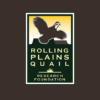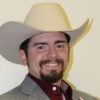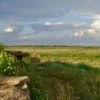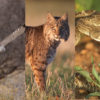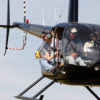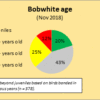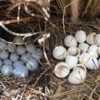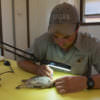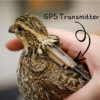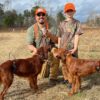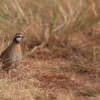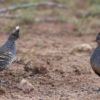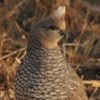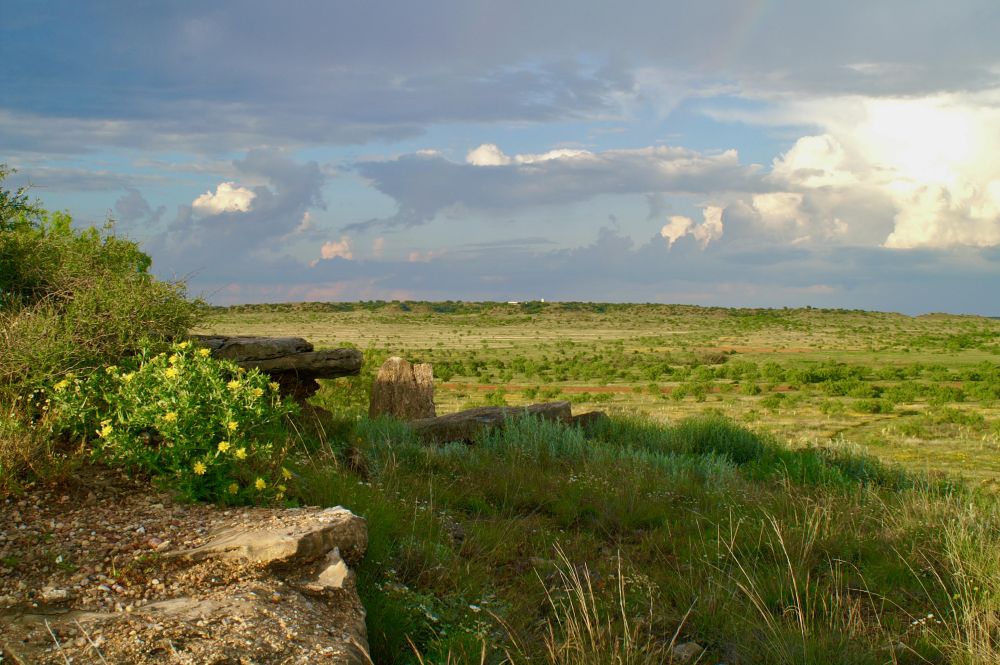
In Texas, few sounds evoke a stronger connection to the land than the whistled “Bob-white” call of the northern bobwhite. Once abundant across the state’s open rangelands, bobwhite quail populations have declined drastically over the past several decades. One critical factor behind this decline is the loss of open canopy landscapes — a habitat condition essential for quail survival. As we fully transition into Spring, and the mesquite trees replace their green canopy, I’m reminded at just how rare open canopy landscapes have become across much of Texas.
Bobwhite quail depend on early successional habitats with a patchwork of native grasses, forbs, and sparse woody cover. Open canopy conditions — generally less than 30% tree cover — are necessary to allow sunlight to reach the ground, promoting the dense herbaceous vegetation that provides food, nesting, and brood-rearing sites. When tree or brush cover becomes too dense, ground vegetation thins, predator visibility increases, and the habitat suitability for quail plummets. In Texas, the major culprits behind this shift are the aggressive spread of mesquite and juniper (commonly called “cedar”) species.
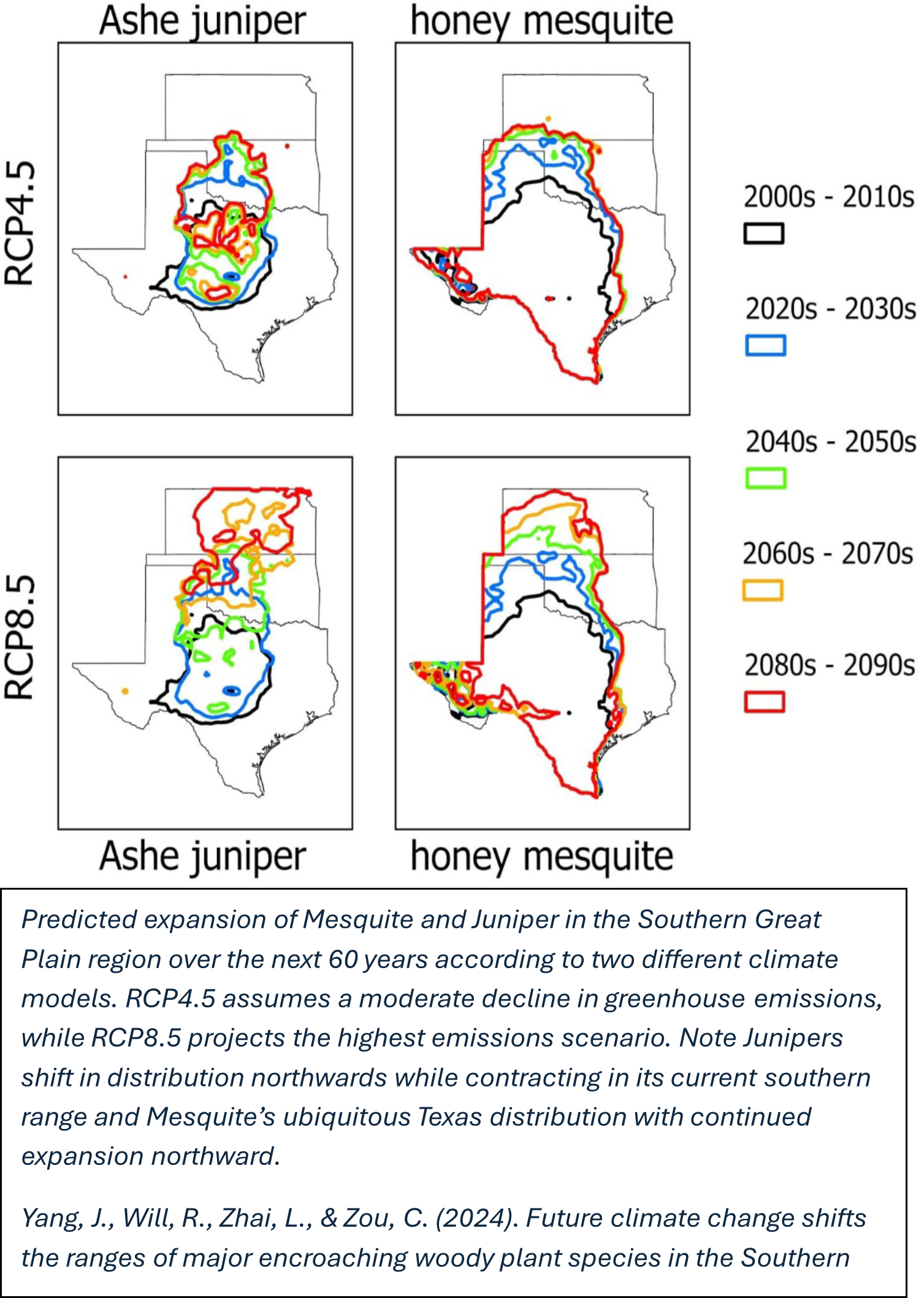 The scale of woody plant encroachment in Texas is staggering:
The scale of woody plant encroachment in Texas is staggering:
- Over 25% of Texas’ rangeland — approximately 32 million acres — has been heavily impacted by mesquite invasion.
- Juniper has expanded across over 8 million acres, particularly in the Edwards Plateau, Cross Timbers, and Hill Country regions.
- In areas like the Rolling Plains and South Texas, mesquite thickets now dominate landscapes that once supported thriving quail populations.
This transformation has converted once-open savannas and grasslands into closed-canopy woodlands, significantly diminishing the availability of quality bobwhite habitat. It has been estimated that in some parts of Texas, such as the South Texas Plains, woody cover increased by more than 60% over the past century — a major barrier to sustaining quail.
Reversing this trend requires proactive management focused on restoring open-canopy conditions:
1. Brush Management and Tree Thinning—Selective clearing of mesquite and juniper, using mechanical methods (e.g., root plowing, grubbing) or targeted herbicide applications, is crucial. Clearing should aim to create a mosaic of open grasslands interspersed with minimal clumps of brush for protective cover.
2. Prescribed Fire—Fire historically maintained Texas’ prairies and savannas. Today, prescribed burning remains one of the most effective tools to control young mesquite and juniper, stimulate native grasses and forbs, and prevent woody plant re-establishment. Ideally, burns should occur every 2–4 years, depending on rainfall and site conditions.
3. Grazing Management—Proper livestock management can complement habitat restoration efforts. Overgrazing can reduce the native plant community critical to quail, while well-timed, moderate grazing can help maintain the open structure necessary for bobwhite habitat.
4. Reseeding Native Vegetation—In heavily degraded areas, reseeding with native species like little bluestem, sideoats grama, and native forbs may be necessary after brush removal to quickly restore ground cover suitable for quail.
Open canopy restoration benefits more than bobwhite quail. Species like scaled quail, Rio Grande turkey, monarch butterflies, Texas Horned Lizards and a suite of grassland songbirds all rely on similar habitats. Additionally, open landscapes help improve soil health, enhance groundwater recharge, and reduce wildfire risk — major concerns in a drought-prone state like Texas.
The decline of bobwhite quail in Texas tells a larger story about landscape change. Yet, the tools to turn the tide are in our hands. Through active canopy management — particularly by controlling mesquite and juniper encroachment — we can restore the open, sunlit prairies and savannas that bobwhites, and so many other species, call home. In Texas, where land stewardship is a proud tradition, restoring open habitats offers a powerful way to ensure the next generation can still hear the familiar “bob-white” call across the rolling hills and plains. – by Dr. Dan Foley

